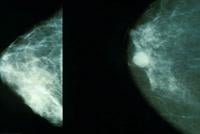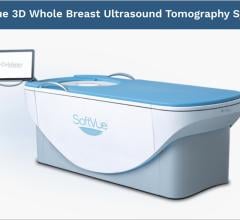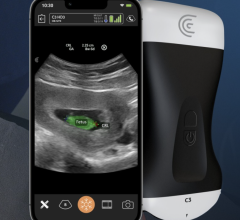
July 26, 2011 – Due to the high incidence of breast cancer in the United States and the potential to reduce deaths from it when caught early, The American College of Obstetricians and Gynecologists (ACOG) issued new breast cancer screening guidelines that recommend mammography screening be offered annually to women beginning at age 40. Previous ACOG guidelines recommended mammograms every one to two years starting at age 40 and annually beginning at age 50.
According to Jennifer Griffin, M.D., MPH, who co-authored ACOG guidelines, the change in mammography screening for women beginning at age 40 is based on three factors: the incidence of breast cancer, the sojourn time for breast cancer growth and the potential to reduce the number of deaths from it. The time period between when a breast cancer may be detected by a mammogram while it is very small and before it grows big enough to become symptomatic is known as the sojourn time. Although the sojourn time of individual cancers can vary, the greatest predictor is age. Women ages 40-49 have the shortest average sojourn time (2-2.4 years), while women ages 70-74 have the longest average sojourn time (4-4.1 years).
"Although women in their 40s have a lower overall incidence of breast cancer compared with older women, the window to detect tumors before they become symptomatic is shorter, on average," said Griffin. The five-year survival rate is 98 percent for women whose breast cancer tumors are discovered at their earliest stage, before they are palpable and when they are small and confined to the breast. "If women in their 40s have annual mammograms, there is a better chance of detecting and treating the cancer before it has time to spread than if they wait two years between mammograms."
ACOG continues to recommend annual clinical breast exams (CBE) for women ages 40 and older, and every one to three years for women ages 20-39. Additionally, ACOG encourages "breast self-awareness" for women ages 20 and older. Enhanced breast cancer screening, such as more frequent CBEs, annual MRI (magnetic resonance imaging), or mammograms before age 40, may be recommended for women at high risk of breast cancer. Breast MRI is not recommended for women at average risk of developing breast cancer.
Breast cancer is the second leading cause of all cancer-related deaths among American women. The incidence of breast cancer in the United States declined 2 percent each year between 1999 and 2006, and deaths from breast cancer have also declined steadily over the past two decades. Evidence suggests the drop in breast cancer rates is most likely due to fewer women getting mammograms and therefore not being diagnosed, as well as a significant drop in women using hormone therapy for menopausal symptoms.
"The good news is that fewer women are dying from breast cancer because of earlier detection and improved treatments," said Gerald F. Joseph, Jr., MD, vice president for ACOG practice activities.
ACOG’s breast cancer screening guidelines also address clinical breast exams and breast self-awareness.
Clinical Breast Exam
Studies on CBEs suggest they can help detect breast cancer early, particularly when used along with mammograms. Thus, ACOG recommends that women ages 40 and older have an annual CBE performed by their physician. Although the benefit of CBEs isn't clear for those younger than age 40, ACOG continues to recommend that women ages 20-39 have a CBE every one to three years.
Breast Self-Awareness
The traditional breast self-exam (BSE) has shifted toward a newer concept called "breast self-awareness." BSE is performed in a systematic way on a regular basis, typically monthly. Breast self-awareness, on the other hand, is women understanding the normal appearance and feel of their breasts, but without a specific interval or systematic examination technique. ACOG endorses educating women ages 20 and older regarding breast self-awareness.
"The goal here is for women to be alert to any changes, no matter how small, in their breasts, and report them to their doctor," said Griffin. "Although we've moved away from routinely recommending BSEs, some women will want to continue doing them and that's OK."
According to ACOG, there is no consensus on the upper age limit for mammograms, although the benefits of screening declines with increasing age compared with the harms of overtreatment. Women ages 75 and older should discuss with their doctor whether to continue getting mammograms, said Griffin.
Practice Bulletin #122 "Breast Cancer Screening" is published in the August 2011 issue of Obstetrics & Gynecology.
For more information: www.acog.org


 July 29, 2024
July 29, 2024 








